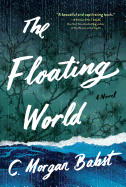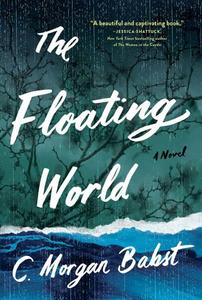
 Hurricane Katrina serves as a backdrop for the separation and upheaval affecting each member of the Boisdoré family. Tess and Joe's marriage, already frayed from the burden of long-buried and unspoken economic class and racial differences, becomes more tenuous after the couple evacuates New Orleans without their daughter Cora, who has gone missing. Suspecting that Cora may have been the victim of--or participated in--a crime during the storm, Tess and Joe's guilt and anger with each other intensifies. Meanwhile, the vagaries of dementia cause Joe's father, Vincent, to disappear frequently from his remote cabin, and another daughter, Del, returns from New York to help find Cora while attempting to escape her own mistakes.
Hurricane Katrina serves as a backdrop for the separation and upheaval affecting each member of the Boisdoré family. Tess and Joe's marriage, already frayed from the burden of long-buried and unspoken economic class and racial differences, becomes more tenuous after the couple evacuates New Orleans without their daughter Cora, who has gone missing. Suspecting that Cora may have been the victim of--or participated in--a crime during the storm, Tess and Joe's guilt and anger with each other intensifies. Meanwhile, the vagaries of dementia cause Joe's father, Vincent, to disappear frequently from his remote cabin, and another daughter, Del, returns from New York to help find Cora while attempting to escape her own mistakes.
Each member of the Boisdoré family is rudderless, emotionally adrift; their only common anchor is their once grand but now uninhabitable New Orleans house, purchased with Tess's inheritance and restored by Joe, a furniture craftsman. A longstanding magnolia tree has crashed through the roof, landing in the middle of the kitchen and serving as a tangible reminder of home's fragility and impermanence.
C. Morgan Babst uses the storm's ferocity to expose the deep ruin at the family's roots. "The water... had been more active and more sinister. It had broken what was built to keep it back. It had snuck in along channels dug to lead it away. It had acted as if with the intent to swallow, to smother, to ruin, to uproot, but most of all, to lift. It had raised sewage, dirt, poisons, furniture, cars, homes, families high above the ground as if to allow God to get a better look, and the things He rejected it had dropped, left them strewn in ruined piles."
The Floating World begins on the 47th day after Hurricane Katrina's landfall and is told in flashbacks from the perspective of each family member to provide some--but not all--answers surrounding the reasons for Cora's disappearance. With a gripping yet deliberate narrative infused with vivid descriptions, Babst takes her time with this story, allowing it to build slowly and methodically with an appropriate weight, enhancing the confusion wrought by the storm. In contrast, Cora's point of view significantly intensifies the pace, lending an urgency to the novel and making her narrative feel almost cyclonic.
A native of New Orleans who evacuated one day before Hurricane Katrina, Babst has an intimate understanding and knowledge of the region's people and rich culture, its topography and the complex forces of race and class. The result is in a timely debut novel about the power of nature and its omnipresent potential for destruction in every aspect of our lives. --Melissa Firman, writer, editor and blogger at melissafirman.com.
Shelf Talker: In the aftermath of Hurricane Katrina, a dysfunctional family copes with the destruction of their home and a daughter's mysterious disappearance.

